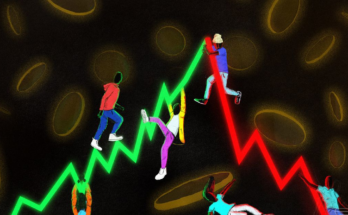
Bulgarian man Rossen G. Iossifov was sentenced to 10 years in U.S. federal prison January 12 for his role in a transnational scheme that stole millions of dollars from hundreds of Americans.
Before his downfall, Iossifov ran RG Coins, a cryptocurrency exchange based out of Sofia, Bulgaria that authorities say frequently acted as a vehicle to launder money for a criminal syndicate known as the Alexandria Online Auction Fraud (AOAF) Network—a 20-person crime ring based in Bucharest that stole from at least 900 Americans via online auction fraud schemes.
Members of the network typically posted advertisements for fake luxury goods (usually cars, apparently) on websites like Craigslist and Ebay. Once unsuspecting buyers had forked over their cash to the AOAF for the nonexistent products, the criminals would engage in “a complicated money laundering scheme wherein” the money would be converted into cryptocurrency and then transferred “to foreign-based money launderers,” of which Iossifov was one. All told, the criminals were said to have stolen approximately $7 million from victims based in the U.S.
The feds claim Iossifov played a big role in these schemes, laundering almost $5 million and making a personal profit of $184,000 in the process. His business practices were “designed to both assist fraudsters” and to “shield himself from criminal liability,” the DOJ says. As a result, Iossifov was convicted of “conspiracy to commit a Racketeer Influenced and Corrupt Organizations Act (RICO) offense and conspiracy to commit money laundering.” A total of 17 members of the AOAF crime ring have so far been convicted for their crimes.
This is definitely not the first (or last!) criminal conviction revolving around cryptocurrency. A report from digital asset intelligence firm CipherTrace released last year showed that the shady side of the digital currency economy is booming—with fraud and other related criminal activities on the rise—and just today the President of the European Central Bank, Christine Lagarde, called for global regulation of Bitcoin, condemning its association with “totally reprehensible money laundering activity.”
G/O Media may get a commission



